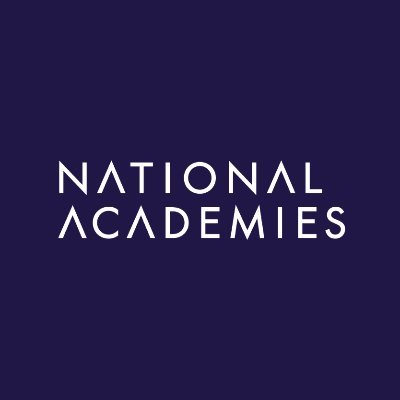
PNAS Nexus
@PNASNexus
Followers
3K
Following
264
Media
1K
Statuses
1K
PNAS Nexus is the fully open access sibling journal to PNAS (@PNASNews) & official journal of the National Academy of Sciences (@theNASciences).
Joined May 2021
2025 Issue 10 of PNAS Nexus is now available! Discover insights on topics such as how ribonucleoprotein (RNP) condensates modulate survival under Mars-like stress conditions, the role of frustrations in cell reprogramming, and more. Explore now: https://t.co/Qvy9F4vrM0
0
0
0
Previous studies suggested that emotional expressions related to morality (e.g., “hate” or “disgust”) increase the diffusion of political messages. A pre-registered direct replication and meta-analysis confirms this “moral contagion” effect. In PNAS Nexus: https://t.co/Lzko51gQRw
0
1
0
One of the most-viewed PNAS Nexus articles in the last week is “Crowding-out effects of opt-out defaults: Evidence from organ donation policies.” Explore the article here: https://t.co/7OwqRdBKe3 To submit your own research, visit PNAS Nexus at https://t.co/qD3ddNhYkZ.
0
0
0
The triangle weaver spider has a spring-loaded web, which it holds taut with its body until prey lands. The spider’s genome has an expanded set of MaSp2 genes that encode silk proteins with high concentrations of the amino acid proline. In PNAS Nexus: https://t.co/XcuRDx2Bn3
0
0
0
Microscopic physics meets macroscopic thermodynamics—no simulations needed. Coiled-coil proteins & DNA reveal the first analytical equations for phase-changing systems. In @physorg_com: https://t.co/vzWR002691 In PNAS Nexus: https://t.co/l22PoElFNY
0
1
0
How do #networks connect people, cities & technology? 🌐 Explore the Human, Urban & Technological Networks Collection in PNAS Nexus—research across #biology, #engineering & #socialsciences revealing how #connectivity shapes our world: https://t.co/pLVe9kjP6D
#Science #Research
0
0
1
Personalized, fact-based dialogues with an AI chatbot can help people set aside conspiratorial beliefs, according to a study of almost 1,000 people who held a variety of false beliefs. In PNAS Nexus: https://t.co/JO9FkaOHry
0
0
0
Never miss a discovery. Get the latest open access research from PNAS Nexus. Sign up for email alerts and get notified as new articles publish: https://t.co/fkyg97VovK
0
0
0
A mega-analysis of MRI studies looks at the brains of people being persuaded by public health, political, and marketing messages. Effective messages engaged brain regions related to personal rewards and to understanding other people’s minds. In PNAS Nexus: https://t.co/KgfntM7Lzj
0
0
0
How does social media distort what we think others believe? Join @PNASNexus Associate Editor @jayvanbavel for the 2025 Henry and Bryna Lecture on November 13 at 5 pm ET, as he explores how technology and psychology create a “funhouse mirror” of public opinion—and why it matters.
#SocialMedia can distort #PublicOpinion, causing issues for individuals and society. Join us November 13 to hear @jayvanbavel discuss how modern technology interacts with human #psychology to create a “funhouse mirror” version of public opinion: https://t.co/VNhRKpa3cK
0
1
5
PNAS Nexus Editor-in-Chief Yannis Yortsos and staff greet NAE President Tsu-Jae Liu and newly elected members of National Academy of Engineering. We’re excited for them to contribute their leadership and innovation to the journal. Congratulations to the 2025 class!
0
0
0
Asking people to opt-out of postmortem organ donation, rather than opt-in, can increase the supply of organs from deceased donors. But it can also decrease the supply from living donors, as people assume the organ supply is sufficiently met. In PNAS Nexus: https://t.co/CveMcqi6sG
0
0
0
A trending PNAS Nexus articles in the last week is “Acetylation of lysine 49 on Ctnnb1 drives naïve pluripotency in murine stem cells by modulating Nanog function.” Explore now: https://t.co/02Mjpw4sPk To submit your own research, visit PNAS Nexus at https://t.co/Q1jdPmgQz2.
0
0
0
Glial cells vary across brain regions and grow disproportionately with brain size, following a ¼ power law—highlighting their key role alongside neurons. 🧠 In @medicalxpress: https://t.co/VIbKb7T9s8 In PNAS Nexus: https://t.co/10PlcUYqbE
0
0
0
A study shows that AI Chatbot summaries produce shallower knowledge than traditional web search. LLMs are thus potentially less useful than web search if the goal is to develop procedural knowledge—an understanding of how to do things. In PNAS Nexus: https://t.co/qwzFS4XGwO
0
3
2
In this week’s Advanced Articles: We explore how Post-January 6 deplatforming shows long-term effects on ideological polarization among Twitter users, investigate reservoir computing with wine beads, and more. In PNAS Nexus: https://t.co/H5UODk8xkk
0
0
0
Shape the future of scientific understanding—publish a Review in PNAS Nexus, the National Academy of Sciences’ open access journal. Bridge disciplines and help guide the next wave of research and innovation. Submit your Review today: https://t.co/6Wx65CS0tN
0
0
0
Algorithms that target influencers can help spread messages efficiently, but the distribution of information can be unfair, leaving vulnerable people uninformed. Researchers propose an algorithm that maximizes reach and information equity. In PNAS Nexus: https://t.co/oQIT97nIkv
0
0
1
Nominations for the 2025 Cozzarelli Prize are now open! Each year, six outstanding PNAS articles are honored for their notable advances in their fields. Submit a nomination today: https://t.co/hLg7MCQqJg
0
0
0
Baker’s yeast endured Mars-like shock waves and perchlorates by forming RNA–protein “P-bodies.” Mutants lacking them grew poorly, linking this stress response to survival. In @astrobiology: https://t.co/TXeuoUveGE In @PNASNexus: https://t.co/e6NRwHH5h0
0
0
0

